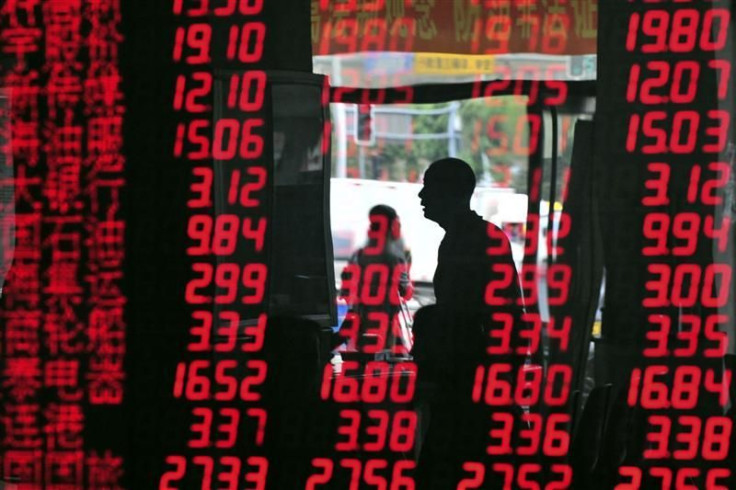Asian Stocks Fall As ECB Disappoints

Most of the Asian markets fell Friday as investors were disappointed to find that the European Central Bank did not announce stimulus measures Thursday to boost the faltering euro zone economy.
Japan's Nikkei Stock Average fell 1.62 percent or 139.98 points to 8513.20. Among major losers were Sumco Corp (6.61 percent), Sony Corp (8.51 percent) and Sharp Corp (29.59 percent).
The Chinese Shanghai Composite rose 0.51 percent or 10.80 points to 2121.98. Hong Kong's Hang Seng was down 0.93 percent or 183.98 points to 19506.22. Among major losers were Sino Land Co Ltd (2.80 percent) and PetroChina Co Ltd (2.29 percent).
South Korea's KOSPI Composite Index declined 0.75 percent or 14 points to 1855.40. Shares of Samsung Electronics Co Ltd rose 0.16 percent and those of Hyundai Motor Co fell 1.68 percent.
India's BSE Sensex fell 0.53 percent or 91.94 points to 17132.42. Major losers were HDIL (2.11 percent), Tata Motors Ltd (1.68 percent) and SBI (1.33 percent).
ECB President Mario Draghi's comments at a press conference in Frankfurt Thursday were a blow to the hopes that the bank would quickly make huge bond purchases to address the euro zone's escalating debt crisis. Subsequently, yields on the ten-year government bonds issued by Italy and Spain surged after they drifted lower earlier in the day. Also the euro zone stock markets and the euro fell sharply.
Draghi stated that the ECB might start to purchase bonds in future and that those purchases might not be sterilized by it. He even hinted that the bank might relinquish its previous status as a preferred creditor for future purchases, which should ease potential private bond-buyers' fears of being last in the queue in the event of default.
Draghi's statement last week that the bank would do whatever it took to preserve the euro had generated hopes of immediate massive bond purchases. But Thursday, it was made clear that the ECB would not act unless the troubled governments first applied to the European Financial Stability Fund (EFSF) to purchase their bonds.
© Copyright IBTimes 2024. All rights reserved.











